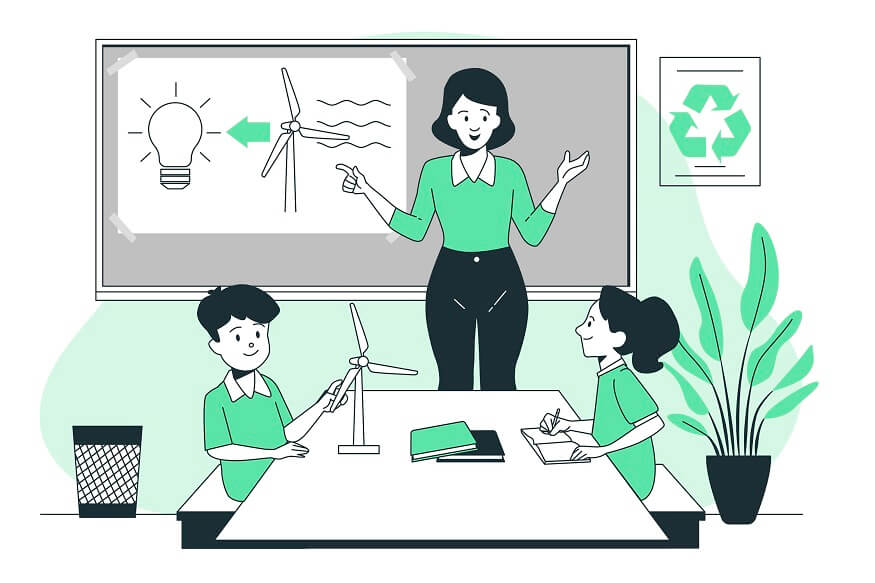Each of us is born unique. There are no two individuals on this planet who are identical. This also implies that the way we learn is also unique for each of us. However, our education system is typically classroom based wherein a bunch of students are delivered the learning by the teachers in one standard format. The method of teaching being followed might suit some students’ learning styles, while it may not suit some other students’ learning styles. This means that there is a high probability that certain students will not be able to grasp the topics being taught in class. These students will need a more individualised ‘remedy’ to help them come to pace and catch up with the rest of the class. This is what is popularly known as remedial teaching. This article talks about all that one needs to know about remedial teaching. The article also talks about the importance and significance of remedial teaching.
Also Read: Effective ways on teaching children the joy of sharing
One-size-fit-all style of teaching
A typical class size in school is between 30 to 50 students. Teachers deliver lectures to the entire class in a synchronous manner. It is only logical to assume that all 50 students in the class will not grasp at the same pace. Some might be fast learners; others might be slow. For example, some students might be good in mathematics while not so good in social science, English, etc. However, the teachers need to work under this constraint and tweak their pace and style of teaching in a way that suits most of the students. It is not possible to teach in a way that suits every student. Even if the teacher is successful in making most of the students learn, some students are still bound to be left behind. This is where the remedial classes assume significance. Teachers can conduct remedial classes for these students periodically to bring them up to pace with the rest of the class.
It’s not the same as tutoring
Remedial teaching is not the same as tuition or tutoring. Tutoring typically involves a complete repetition of the topics being taught in class. However, remedial teaching only involves specific topics wherein the students might need help. Tutoring can be considered supplementary, while remedial is more complimentary in nature. A tutor is not concerned with what is being taught in school and how effective it is. A tutor typically covers the entire syllabus, end to end. Tutoring is like a parallel classroom being conducted outside of school. Remedial teaching on the other hand is selective in nature and only targeted at helping students with specific topics where they are facing problems in understanding.
Addresses Learning Deficiencies
Some students might suffer from learning deficiencies such as ADHD and feel lagging while the other students in the class are grasping things fast. Personalised remedial classes can be designed for such students by using innovative teaching techniques that might work for them. One of the popular examples of this phenomenon can be observed in the popular Hindi movie Taare Zameen Par where the teacher played by Aamir Khan uses innovative remedial methods to help a child Ishaan, who is suffering from a learning disorder called dyslexia.
A Remedial Plan for Every Student
The remedial style of teaching should not be misunderstood to indicate relevance for students with learning disorders, or those who are not able to keep pace with others in the class. A remedial style of teaching can also involve addressing the unique learning strengths of individual students and custom-designing an appropriate learning method that might work best for students. In modern education systems, remedial plans are prepared for all students. These plans are tailor-made for each student keeping in mind their unique learning dispositions. Development of such remedial plans frequently involves various psychometric and psychoeducational assessments, review of report cards, discussions with parents, teachers, other classmates, etc. Based on all this information, a remedial plan can be prepared for each student. Such remedial plans can be extremely helpful in getting the most out of the education for each student.
Also Read: Role of Textbook in Language Teaching and Learning
Indicators that your child needs remedial teaching
In an ideal world, all students should have a remedial plan based on their unique learning styles, unique strengths and weaknesses, and the unique family and social environment that they come from. However, if you are wondering whether your child specifically needs a remedial plan, the following are some indications that they do:
● Learning disabilities. If your child is suffering from any of the learning disabilities such as:
● ADHD. Difficulty in paying attention and staying focused.
● Dyscalculia. Inability to understand and comprehend numbers and mathematical facts.
● Dysgraphia. A disability that affects handwriting and fine motor skills
● Dyslexia. Disability-related to reading and language-based processing skills.
● Consistently Poor Grades. If your child is getting poor grades consistently, it is an indication that remedial teaching plans are worth considering.
● Weakness in certain areas. The downfall in grades need not be across the board. Sometimes it can be in very specific subjects. For example, certain students tend to do well in most subjects but perform poorly in mathematics. This might be a good opportunity to design remedial plans for your child in mathematics in this case.
● Sudden fall in grades. It can also happen that while your child was good overall till a certain class, however, there is a sudden decline in grades as they graduate to higher levels. This might be because of the change of subjects and their difficulty level. This is a fair indication that the child might need remedial plans.
Also Read: Why Teaching Kids Life Skills Is As Important As Academics
Schools must assess the unique learning profile of each student and develop individualised remedial plans for them. Teachers, parents and students must work together to design and implement appropriate remedial plans to extract the most out of their education. At EuroSchool, we are extremely mindful of the unique learning profiles of each of our students. Our educators are experts in charting out appropriate remedial plans for all our students. This enables us to deliver equal-impact learning to all unique individuals who attend EuroSchool as students.










